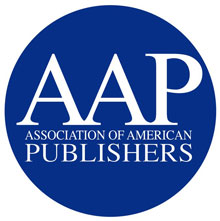December 9, 2021
THE ASSOCIATION OF AMERICAN PUBLISHERS FILES SUIT AGAINST THE STATE OF MARYLAND OVER UNPRECEDENTED ENCROACHMENT INTO FEDERALLY PROTECTED COPYRIGHTS

Suit Seeks to Overturn Unconstitutional Law That Undermines the Intellectual Property of Authors and Publishers
The Association of American Publishers (AAP), the national trade association for the U.S. publishing industry, today filed suit against the Maryland Attorney General seeking to enjoin and overturn an unconstitutional Maryland law that directly conflicts with the federal Copyright Act by forcing any publisher, domestic and foreign, to make their literary works available to Maryland public libraries in electronic book and audiobook formats according to timing, pricing, and other terms mandated by the state under threat of penalty.
Slated to take effect on January 1st, 2022, the Maryland law gives libraries unprecedented control over basic copyright transactions that are clearly reserved to those who write, develop, invest in, distribute, and make publicly available the invaluable array of novels, biographies, historical and political works, poetry, scholarship, and course materials that are the mission of publishing, and which together fuel entertainment, human empowerment, and scientific progress on a global basis. In seeking to regulate books, Maryland disregarded the testimony of publishers and authors, established law, and market facts.
Maryland Act Preempted by Federal Law
“Maryland does not have the constitutional authority to create a shadow copyright act or to manipulate the value of intellectual property interests,” commented Maria A. Pallante, President and CEO of the Association of American Publishers and former head of the United States Copyright Office. “It is unambiguous that the U.S. Copyright Act governs the disposition of literary works in commerce—and for that matter, all creative works of authorship. We take this encroachment very seriously, as the threat that it is to a viable, independent publishing industry in the United States and to a borderless copyright economy.”
The complaint, filed in federal court in Maryland, argues that the Maryland law is preempted by the United States Copyright Act, unconstitutionally interferes with interstate commerce, and violates the Constitution’s Due Process clause by mandating vague and unspecified licensing requirements.
The Marketplace Works
There is no justification for Maryland’s intrusion into the publishing industry, even if were not preempted. Although print remains an extremely popular format among readers of all ages, libraries today also have access to a dizzying number of titles in ebook and audiobook formats, just as retail channels do. Publishers must, of course, make balancing decisions about the timing, pricing, and formats of their books, in order to ensure a return on their investments and to achieve the long-term potential value of any particular work. These incalculable decisions are the means by which all content businesses compete, endure, and serve the public interest, whether they invest in books, music, movies, or newspapers. Moreover, the legislation is redundant, as publishing houses have long been on the front lines of supporting libraries, from their earliest incarnations to the age of the Internet.
“The fact is that the vast majority of AAP members already make their full digital catalogs available to public libraries across the country, with the result that Maryland’s lending institutions see millions of digital checkouts each and every year, giving them a broader reach than ever before in their history,” commented Ms. Pallante. “And on a national basis, America’s lending institutions will see over half a billion digital checkouts over the course of 2021 alone, according to Overdrive, the leading digital reading platform for libraries and schools worldwide.”
Publishing as a Business, and Key Contributor to The National Economy
The Maryland Act is an impermissible and unconstitutional overreach into federal copyright law and an unjustified effort to divert copyright policy away from the U.S. Congress to state assemblies, at the expense of longstanding incentives and protections that are the foundation of our creative economy.
The authority of the federal Copyright Act is the basis of all content-driven businesses, and has made America’s core copyright industries, including publishing, key drivers of the national economy, employing 5.7 million workers and contributing an annual $1.5 trillion to the U.S. GDP.
For these reasons, some twenty-five years ago, the United States and hundreds of other countries addressed copyright interests arising in the context of the digital environment through a pair of binding instruments known as the WIPO Internet Treaties. These treaties, which the United States duly affirmed through a combination of existing law and the 1998 Digital Millennium Copyright Act, make clear that the copyright owner has the exclusive right to authorize the digital dissemination or transmission of a creative work, including in new and innovative formats and irrespective of whether the customer is in a bookstore, library, or the comfort of their own home. Intergovernmental leaders paved the way for the very innovations that led to ebooks and audiobooks, and which will, no doubt, lead to future exciting formats made possible by a free and ever-evolving marketplace.
The full complaint can be found here.
Declaration of Maria A. Pallante, President and CEO, Association of American Publishers, can be found here.
Declaration of the Authors Guild in support of the plaintiff’s motion for preliminary injunction can be found here.
The plaintiffs motion for preliminary injunction can be found here.
Memorandum in support of plaintiff’s motion for preliminary injunction can be found here.
Plaintiff’s reply in support of its motion for preliminary injunction, and opposition to defendant’s motion to dismiss can be found here.
AAP is represented by Oppenheim + Zebrak LLP.
About AAP
AAP | The Association of American Publishers represents the leading book, journal, and education publishers in the United States on matters of law and policy, advocating for outcomes that incentivize the publication of creative expression, professional content, and learning solutions. As essential participants in local markets and the global economy, our members invest in and inspire the exchange of ideas, transforming the world we live in one word at a time. Find us online at www.publishers.org or on Twitter and Instagram at @AmericanPublish.
